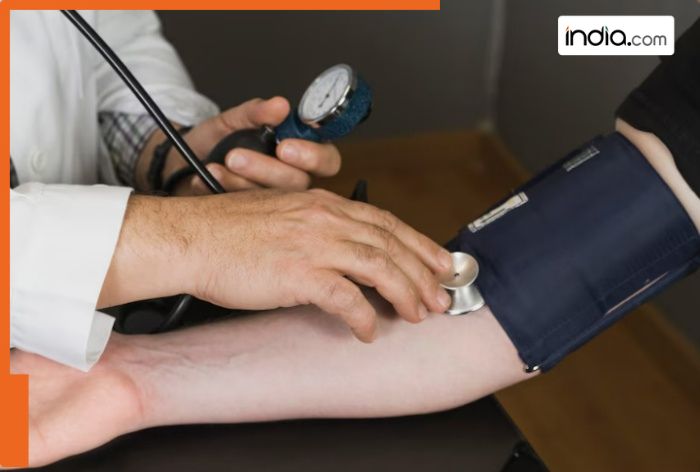High blood pressure can put your heart at risk. Here is a simple routine to regulate hypertension amidst the stressful hustle culture.
High blood pressure, or hypertension, is a common condition that can lead to serious health problems, such as heart disease and stroke. Hypertension is also increasing alarmingly among young people. Much of this can be attributed to sedentary living conditions and busy work culture. Blood pressure develops when the artery is put under extra strain for the flow of blood and oxygen, hindering the heart’s strength. Fortunately, there are effective strategies to help control and reduce blood pressure. Here you will find a step-by-step guide to help you lower your blood pressure and improve your overall health.
Step-by-step guide to reducing high blood pressure
- Control your blood pressure The first step in controlling high blood pressure is to monitor it regularly. You can use a blood pressure monitor at home for added convenience. Keep track of your readings to identify patterns and share them with your healthcare provider. Try to get a blood pressure reading below 120/80 mm Hg.
- Adopt a heart-healthy diet Diet plays a crucial role in controlling blood pressure. Consider the following dietary changes; The Dietary Approaches to Stop Hypertension (DASH) diet emphasizes fruits, vegetables, whole grains, lean proteins, and low-fat dairy, while reducing saturated fat and cholesterol. Try to eat plenty of potassium-rich foods, such as bananas, sweet potatoes, and spinach.
- Reduce sodium intake: Limit your sodium intake to less than 2,300 mg per day, or ideally 1,500 mg for people with hypertension. Read food labels and avoid processed foods high in salt.
- Limit alcohol consumption: If you drink alcohol, do so in moderation. For women, this means up to one drink per day and for men, up to two drinks.
- Increase physical activity: Regular physical activity can help lower blood pressure and improve heart health. Try to do moderate-intensity aerobic exercise each week, such as brisk walking, bicycling, or swimming. Incorporating strength training exercises at least twice a week can also be beneficial.
- Maintain a healthy weight: Excess weight can contribute to high blood pressure. If you are overweight, losing even a small amount of weight can help lower your blood pressure. Focus on a balanced diet and regular exercise to achieve and maintain a healthy weight.
- Manage stress: Chronic stress can contribute to high blood pressure. Incorporate stress-reducing practices into your daily routine, such as: Take time each day to practice mindfulness or meditation to help calm your mind. Simple deep breathing techniques can help reduce stress levels and improve relaxation.
- Get enough sleep: Quality sleep is essential for overall health and can affect blood pressure. Aim for 7 to 9 hours of sleep each night. Establish a regular sleep schedule and create a relaxing bedtime routine to improve sleep quality.
Controlling high blood pressure requires a comprehensive approach that includes monitoring, dietary changes, exercise, weight management, stress reduction, and adequate sleep. By following these steps, you can effectively lower your blood pressure and reduce the risk of related health problems. Always consult a professional to determine the effects quickly.
